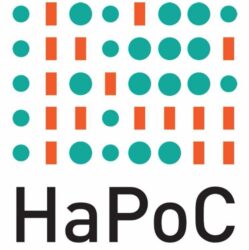We are happy to announce that Fabio Bertato and Henrique Cukierman will submit a proposal for the organization of the DHST/DLMPS HaPoC symposium titled “The Ubiquity of Computing: historical and philosophical issues”. We cordially invite all members of the commission to submit a proposal to this symposium. Please find below a detailed call for contributions to this symposium
Call for contributions to the HAPoC symposium proposal
The history of information and communication technologies (ICTs), despite its approximately 70 years, has already shown a rich accumulated experience coming from the most diversified initiatives, efforts and pioneering projects.
Fully incorporated into reality, to the point of being considered ubiquitous, ICTs can be considered mature enough to bring about a balance that seeks to account for its past and its origins. A more extensive study of their history surely contributes to establish a valuable research field and to consolidate an international community of historians and philosophers of ICTs, discussing and framing propositions that can help to inspire and produce future developments.
The DHST/DLMPST Commission for the History and Philosophy of Computing is an Inter-divisionary Commission of the
Division for the History of Science and Technology and the Division of Logic, Methodology and Philosophy of Science and Technology.
As a DHST/DLMPST commission, HaPoC will organize a Symposium at the 25th International Congress of History of Science, and Technology (ICHST), which will be held in the city of Rio de Janeiro, Brazil, from 23 to 29 July 2017, with the general theme “Science, Technology and Medicine between the Global and the Local”.
The present Call for Contributions is an opportunity to evaluate papers related to the theme “The Ubiquity of Computing: historical and philosophical issues” to include them into the Proposal to be submitted to the ICHST.
Contributions from the most diverse areas of knowledge and professional practices are welcome, since the HaPoC Symposium is an interdisciplinary event, dedicated not only to the history of computation artifacts and informational processes, but also to the relationship between computer science and politics, economy, labour, university, education, social change, business, environment, public policies, science and technology, culture, arts and the humanities.
List of topics of interest (not exhaustive):
• The beginnings of computer science and technology.
• The links from the beginnings of computer science with mathematics and the beginnings of digital electronics.
• History and philosophy of computing issues.
• Logical foundations of computer science.
• The uses of computer in its early days and its process of integration to the academic field, the state and the productive sectors.
• The development of professional careers in academic computing.
• The development of research in computer science: its groups, its research institutions and their production.
• The development of information technologies in public and private institutions.
• The regional and international collaboration.
• National policies of informatics. The (lack of) contribution of state policies in national development.
• The development of communications and its historical, political and social links.
• Information technologies, culture and arts.
• The establishment of academic networks and their influence.
• The evolution of the Internet and the participation of institutions in this process.
• The issue of local cultures facing the globalized world of ICTs.
• The biographies of members and pioneers of ICTs projects .
• The existence, preservation and socialization of the heritage constituted by artifacts, press publications, documents and technologies used in different moments of the history of computing.
For this symposium, contributions should present different dimensions of the history and philosophy of computing, with arguments and propositions based on testimonials, documented sources, references, and discussion of related bibliography.
Submission details
We cordially invite researchers working in a field relevant to the main topics of the Symposium to submit a short abstract in English of approximately 250-500 words to hapoc2017riodejaneiro@gmail.com. The deadline is
